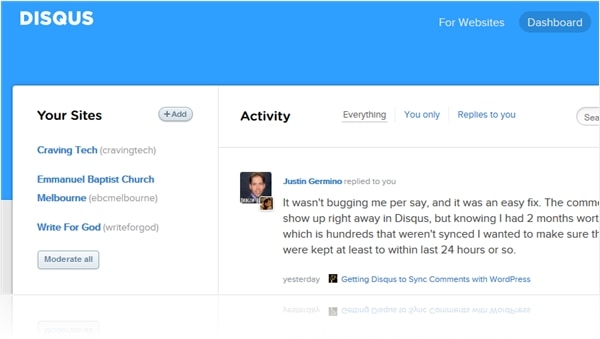
Last week, I’ve decided to move my commenting system to Disqus, which is one of the most popular commenting systems out there. Some of you asked and wanted to know why I decided to make the change. I also sort of made a promise in my how to migrate to Disqus post, so being a man of promise, here is my post on why I change to Disqus. It’s not going to be full-blown Disqus review post, but more on the good points that made me move.
[1] Ease server load by removing unnecessary plugins
Since Disqus handles all the commenting parts, I can deactivate a lot of WordPress plugins related to commenting (protection, management, etc) which should definitely ease the load on my server. The less plugins you use, the less strain you have on the CPU and also a faster loading time.
Here are the WordPress plugins I could deactivate as a result:
- Akismet (you know what this is)
- AVH First Defense Against Spam (auto anti spam)
- Growmap Anti Spambot Plugin (that tickbox to confirm you are not a spammer)
- CommentLuv (link back to your blog/site, if URL is specified – sorry to take this out)
- ReplyMe (send notification when someone replies your comment)
- Subscribe to Comments Reloaded (allows you to subscribe to comments)
- Filter Email Notifications (prevent WordPress sending emails to approved comments)
Though in the end, I still have to install an extra plugin, Simple Trackback Validation, to stop trackback spam and of course the Disqus plugin itself.
[2] Easier to block and blacklist spam commenters
Disqus has its own spam protection system and since you have to login to Disqus to comment, it will significantly reduce spam (though as always, not completely). So far though, I’m really happy and I have 0 spam from bots.
I can also easily blacklist spam comments and commenters (or at least those who are not worth your time to manage and reply) such as those trivial comments using keywords as their name and only leave a couple of words like “thank you” or “good article” kind of comment.

If he/she is using a legitimate email address, you can block the email address or the IP address (though you may unintentionally block genuine commenters who happen to be on the same IP). Thanks to Disqus, however, if he/she logs in using a Disqus username, you can block/blacklist that username instead. You can manage your Whitelist/Blacklist in case you change your mind in the future.
PS: If you are the person on my screenshot and want to repent from your sin, email me and I’ll take you out from my blacklist :)
[3] Juicier and tidier layout
Unless you are a CSS expert, you can’t really change the layout of the default WordPress commenting area much. Disqus comes with a sleek layout (at least in my opinion) and can be further tweaked by CSS, if you want to be in control.

[4] Better experience for commenters
Auto fill information
Disqus is popular and used in lots of big sites on the net. Since this is a technology + bit of blogging blog, most of my readers have already logged in to Disqus. Even if you are not and you don’t have a Disqus account, you can still use your Twitter, Facebook, or Google account to comment. In the old WordPress commenting system, commenters have to fill in their name and email manually, especially if they visit this blog for the first time.

There is also an option allowing Guests to comment (if you are not in Twitter or Facebook), so the power is in your hands. I decided to turn off guest commenting just to avoid spam but it’s entirely up to you.
The use of “@”
Commenters can use “@” to refer to another commenter in the thread or even to more than 1 commenters, just like Twitter and Facebook. This encourages more interactions to the comment thread.

Seamless commenting
With WordPress, every comment you make refreshes the screen, but not with Disqus. It’s real time and you can reply lots of comment threads without feeling annoyed. It’s fast, seamless, and simply better.
All the features that Disqus offers
You can view your other comments on any sites that use Disqus, get a notification when someone replies to your comment, vote comments, etc.
[5] Reply and Block via e-mail
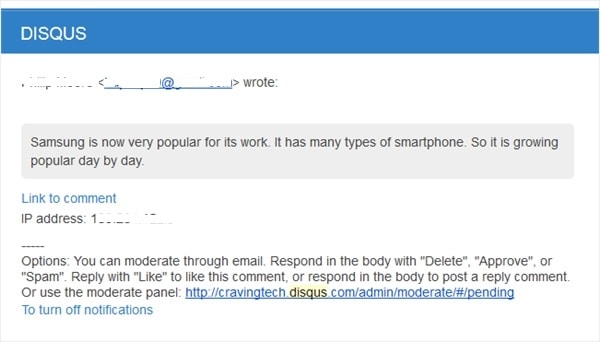
As the admin, you can process each comment just by replying to the notification email with “Approve”, “Delete”, “Like”, “Spam”, or the reply to that comment. Disqus will automatically add that reply into the comment thread. So rather than having to go to your own Dashboard to reply, you can do it straight away on your phone, Outlook, or whatever. Saves lots of time!
[6] Lower your bounce back and earn some money
Disqus Discovery adds an extra section below the comments to highlight similar posts or interesting contents. You can read the Disqus Discovery faq to find out more about the algorithm but so far I’m happy because the proposed contents are quite related to the post I’m looking at.

From the Analytics, I got around 17 visits in the last 7 days by adding the Disqus discovery. Not bad.
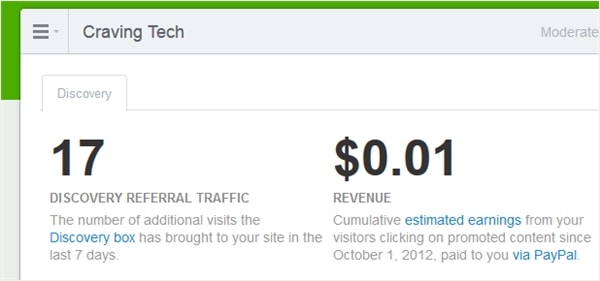
I tried with Earnings (by allowing Disqus to suggest sponsored contents from other sites) but when I saw that 1 cent earning, I turned that off. I would prefer to have a bigger Discovery area to get more traffic than having pennies. It’s up to you though, feel free to play around and pick.
I think there are more that I can put on in this post but the main reason why I changed, is probably because I find myself commenting and interacting more often on websites that use the Disqus commenting system. Maybe it’s that voting system, maybe it’s the auto notification that is not intrusive, maybe it’s the sleek layout and real-time conversations, or maybe it’s something else. Whatever it is, I find that I love to visit, reply, and interact more on my own past comments on websites with Disqus. It’s a win-win to the commenters/visitors and also the blog owners.
Disqus also auto syncs the comments back to my WordPress, so I don’t see a reason why I shouldn’t make the change. If something bad happens to Disqus, I can always turn it off and back to the old system in a snap.
Does this post encourage you to move your own blog commenting system to Disqus?


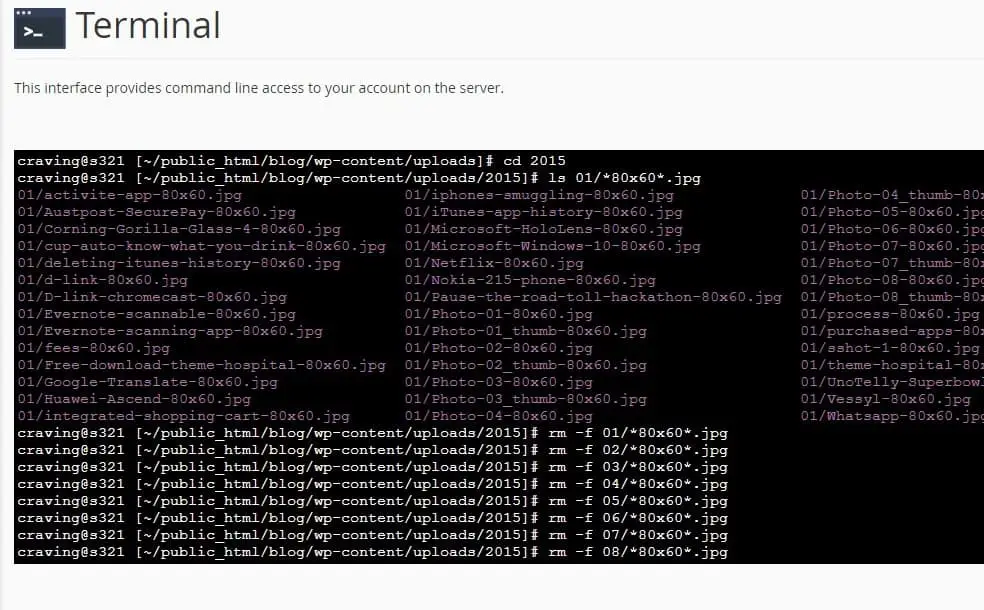

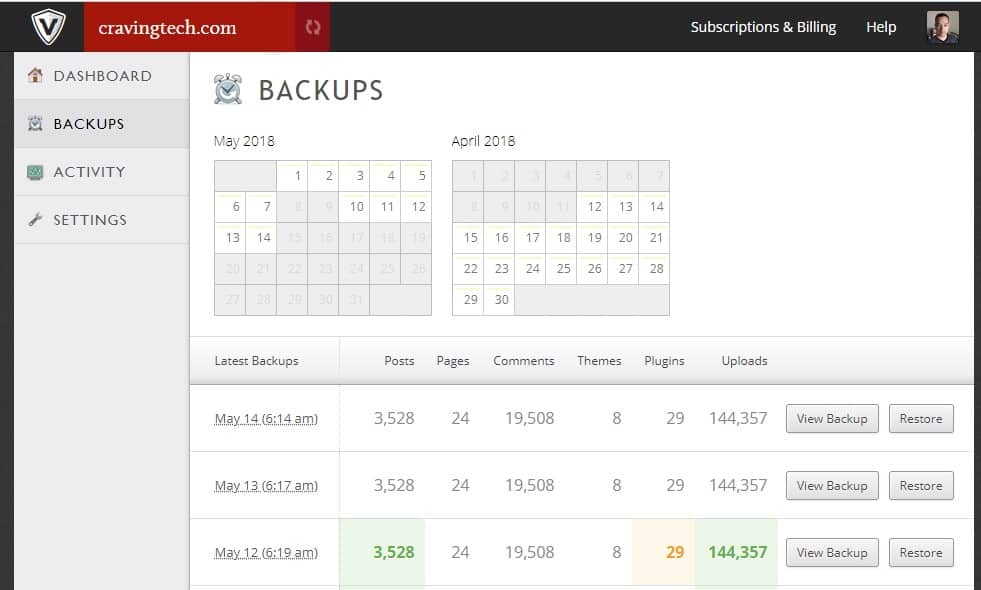


Comments are closed.